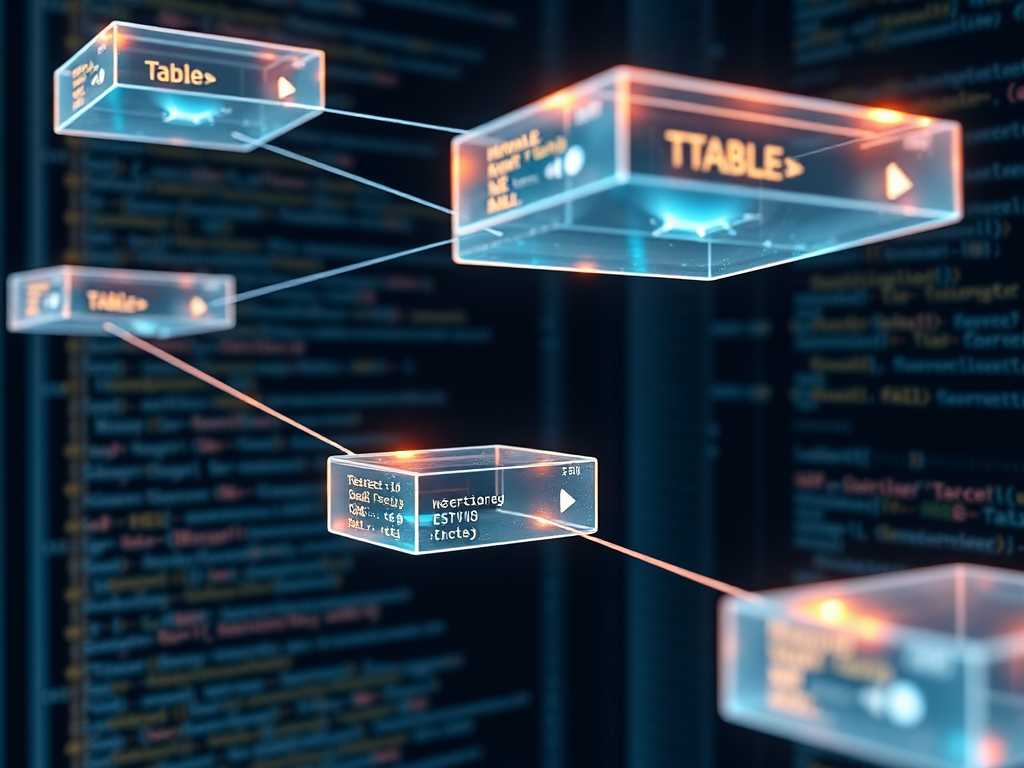Opening Thoughts
Do you often face this dilemma: when starting a new Web project, should you choose Django or Flask? I've been asked this question countless times while mentoring students and working on projects. As a developer with over ten years of Python experience, today I'll share an in-depth comparison of these two frameworks to help you make the best choice for your project.
Framework Positioning
Let's first discuss the basic positioning of these frameworks. Django is a comprehensive framework, like a fully equipped warrior, providing all the functionality needed for Web development; Flask is like a nimble ninja, lightweight and flexible, allowing you to freely combine various tools according to your needs.
I remember when building an enterprise internal management system in 2018, choosing Django saved me a lot of work. Its built-in admin management system allowed me to quickly set up data management interfaces with almost no coding. But when developing a microservice API project in 2020, I chose Flask because its flexibility allowed me to better control every detail.
Technical Architecture
Django adopts the MTV (Model-Template-View) architectural pattern, a variant of MVC. Its architecture is very complete, including:
- ORM (Object-Relational Mapping)
- Template engine
- Form processing
- Authentication system
- Admin backend
- Caching framework
- Geographic information system functionality
Flask, on the other hand, has a simpler architecture, essentially providing only core routing and request handling functionality. This difference directly affects development efficiency and learning curve. From my experience, a beginner might need 1-2 months to fully master Django, while Flask might only take 2 weeks.
Performance Comparison
Regarding performance, which is probably what many people care about most, I've done some simple performance tests under identical hardware conditions (4-core CPU, 8GB RAM), testing a simple Hello World API using Apache ab tool:
Flask performance:
Requests per second: 2947.85 [#/sec]
Time per request: 0.339 [ms]
Django performance:
Requests per second: 2132.64 [#/sec]
Time per request: 0.469 [ms]
As you can see, Flask has a slight performance advantage. However, note that this is just a basic performance test, and actual project performance depends more on your business logic and database operations.
Development Efficiency
Django's "Batteries Included" philosophy indeed greatly improves development efficiency. Let me give a practical example, suppose you need to develop a blog system with user authentication:
With Django, you only need:
from django.db import models
from django.contrib.auth.models import User
class BlogPost(models.Model):
author = models.ForeignKey(User, on_delete=models.CASCADE)
title = models.CharField(max_length=200)
content = models.TextField()
created_at = models.DateTimeField(auto_now_add=True)
With Flask, you need:
from flask_sqlalchemy import SQLAlchemy
from flask_login import UserMixin
from datetime import datetime
db = SQLAlchemy()
class User(UserMixin, db.Model):
id = db.Column(db.Integer, primary_key=True)
username = db.Column(db.String(80), unique=True, nullable=False)
password = db.Column(db.String(120), nullable=False)
class BlogPost(db.Model):
id = db.Column(db.Integer, primary_key=True)
author_id = db.Column(db.Integer, db.ForeignKey('user.id'), nullable=False)
title = db.Column(db.String(200), nullable=False)
content = db.Column(db.Text, nullable=False)
created_at = db.Column(db.DateTime, default=datetime.utcnow)
Keep in mind, this is just the data model definition. In actual development, you'll need to handle form validation, user authentication, template rendering, and various other functionalities.
Ecosystem
Regarding the ecosystem, both frameworks have massive community support. As of 2024, the data shows:
Django's PyPI downloads: - Monthly downloads: about 5 million - GitHub stars: 70k+ - Active contributors: 1000+
Flask's PyPI downloads: - Monthly downloads: about 7 million - GitHub stars: 65k+ - Active contributors: 800+
But numbers don't tell the whole story. Django plugins are usually more standardized and stable because Django itself has stricter constraints. Flask plugins are more flexible and diverse but vary in quality.
Learning Curve
From my teaching experience, Flask has a relatively gentle learning curve. You can start with a minimal application:
from flask import Flask
app = Flask(__name__)
@app.route('/')
def hello():
return 'Hello, World!'
if __name__ == '__main__':
app.run()
While Django requires multiple steps like creating a project, configuring settings.py, defining urls.py, etc., even for the simplest application. This difference is also reflected in actual learning time:
- Flask basics mastery time: about 20 hours
- Django basics mastery time: about 40 hours
- Flask advanced features mastery time: about 60 hours
- Django advanced features mastery time: about 100 hours
Use Cases
Based on my years of project experience, I've summarized some selection recommendations:
Suitable scenarios for Django: - Content Management Systems (CMS) - E-commerce platforms - Enterprise management systems - Social networking platforms - Systems requiring complete backend management
In 2022, I worked on a large e-commerce project where I chose Django because we needed to handle complex product management, order processing, and user permissions. Django's built-in functionality saved me a lot of development time.
Suitable scenarios for Flask: - REST API services - Microservice architecture - Simple web applications - Prototype development - Projects requiring deep customization
Last year, I participated in an IoT project where we chose Flask because we needed to develop lightweight API interfaces and integrate some special hardware drivers. Flask's flexibility proved important in this scenario.
Maintenance Costs
Regarding maintenance costs, this is a point many people easily overlook. Django's standardization makes code maintenance relatively easy, especially in team collaboration. I once took over a Flask project where the previous developer used too many "non-standard" solutions, making maintenance particularly difficult.
Maintenance costs mainly manifest in these aspects:
Code organization: - Django: Enforces project templates, unified code structure - Flask: High flexibility, team needs to establish their own standards
Dependency management: - Django: Good version compatibility, clear upgrade paths - Flask: Potential compatibility issues between plugins
Documentation completeness: - Django: Comprehensive official documentation, rich examples - Flask: Concise core documentation, varying plugin documentation quality
Performance Optimization
In real projects, performance optimization is an eternal topic. I've summarized some common optimization techniques:
Django performance optimization:
posts = Post.objects.select_related('author').all()
from django.views.decorators.cache import cache_page
@cache_page(60 * 15) # Cache for 15 minutes
def my_view(request):
return render(request, 'template.html')
Flask performance optimization:
from flask_sqlalchemy import SQLAlchemy
app.config['SQLALCHEMY_POOL_SIZE'] = 10
app.config['SQLALCHEMY_POOL_TIMEOUT'] = 30
from functools import wraps
from flask import request
def cache(timeout=5 * 60):
def decorator(f):
@wraps(f)
def decorated_function(*args, **kwargs):
cache_key = request.path
value = cache.get(cache_key)
if value is None:
value = f(*args, **kwargs)
cache.set(cache_key, value, timeout=timeout)
return value
return decorated_function
return decorator
Final Thoughts
Choosing between Django and Flask isn't about right or wrong. The key is to decide based on project requirements and team circumstances. If you ask for my advice, I would say:
- If you're a beginner, start with Flask because its concepts are simple and help you better understand Web development basics
- If you're developing a complete Web application with tight time constraints, Django would be better
- If your project has special requirements, needs deep customization, or is developing API services, Flask might be more suitable
Finally, I want to say that technology selection is just the beginning; the real challenge lies in how to use these tools well. What do you think? Feel free to share your experiences and thoughts in the comments.
>Related articles




